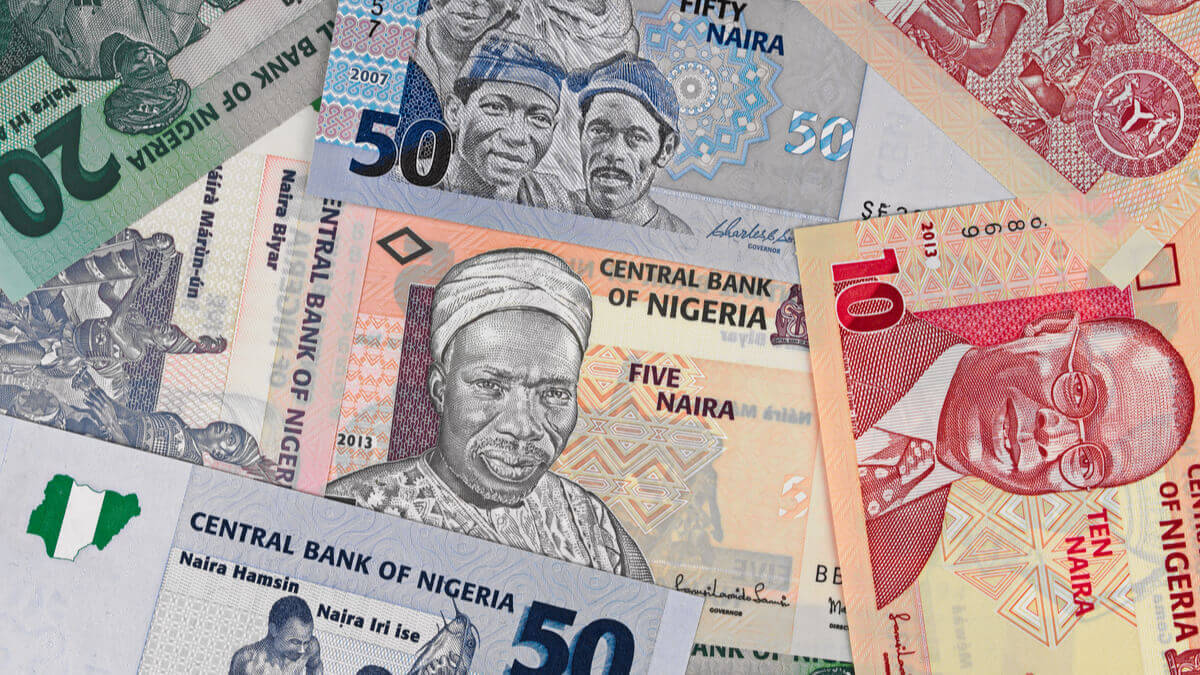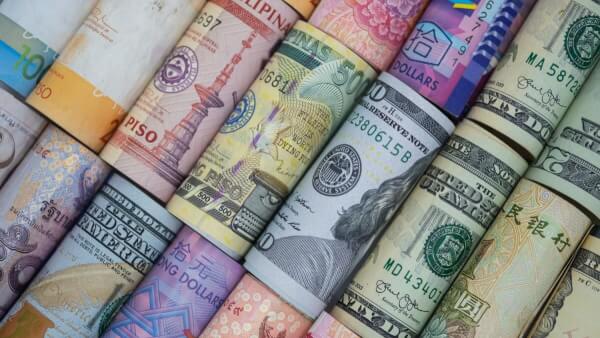How to open a foreign currency account in the US
Wondering how to open a foreign currency account in the US? Struggling to find information? Read on to find out what you need.

Nigeria isn't particularly well known as an expat destination, but it’s becoming more popular as people move to pursue career opportunities in sectors such as banking, mining and oil.
If you’re moving to Nigeria for work - or are planning on setting up your own company there - a local bank account is essential. This guide covers all you need to know - plus we’ll look at Wise, a non-bank alternative with a multi-currency digital account you can use to hold, send, spend and exchange Nigerian naira alongside USD and 40+ other currencies. More on that later.
Banks can offer financial products to non-residents, although each bank will decide which accounts it makes available and to whom. For example, some non-resident products are specifically designed for non-resident Nigerian citizens and open only to Nigerians living abroad.
You’ll find these described as diaspora accounts, or non-resident Nigerian accounts. Make sure you check the suitability of an account when you’re researching it.
Generally, opening a non-resident account with a Nigerian bank as a US citizen may be tricky. Choosing a digital non-bank alternative may be an easier option if you’re looking for a way to hold, exchange, send and spend naira from the US. More on that later.
If you’re planning to open a first Nigerian bank account, you’ll need to provide a stack of paperwork. Once you’ve got a BVN¹ - a Nigerian digital ID verification code - getting subsequent accounts will be much easier. However, for expats arriving in Nigeria the process can be a bit involved.
If you’re not a Nigerian citizen and don’t yet have a BVN, for example, you may need an introduction, reference, or employer letter. In many cases, the bank will want one or two references to vouch for your good character, usually from people who already hold an account with that bank.
If you’re opening an account to pay your salary into, then you’ll probably need an employer letter confirming you're employed. All in all, this can be a bit tricky if you’re a new arrival in Nigeria.
The exact requirements will vary depending on the bank and the account type, but expect to be asked for the following if you can’t provide a BVN²:
|
|---|
Most banks have the exact requirements set out on their website.
Whether or not you can open an account online without being in the country will depend on your situation. In most cases, unless you have a BVN already, you’re expected to attend a bank in person, with original documents, and give signature samples for your account to be opened.
You can also ask your employer if they offer support for opening a bank account to expats that they hire.
If you’re not in Nigeria yet and simply want to get your account set up ahead of time, you might want to consider a non-bank alternative like Wise, which has multi-currency accounts you can use to hold and spend naira as well as around 40 other currencies, including USD.
To open a Nigerian bank account without a BVN you'll need to visit your local branch to submit an application with supporting documents. You should check the arrangements with your chosen bank, as you might have to make an appointment to open your account with an advisor. You should simply just need to submit your paperwork and it’ll then take a few days to have your bank card prepared.
Nigeria has a fairly well-developed banking sector, with plenty of choice. Banks available include local brands and those operating all over the region. If you intend to travel outside of Nigeria often, choosing a bank with a presence in other countries in West Africa might make sense, as you can usually get cheap or free ATM withdrawals if you use banks in the same network outside of Nigeria.
Let’s look at some of the largest retail banks in Nigeria:
Zenith Bank³ has been established since 1990 and has over 500 branches all over the country.
| Helpful products they offer: |
|---|
|
First Bank of Nigeria⁴ has been established for well over a century and now has business locations across Africa, Europe, Middle East and Asia.
There are also specific banking options for people looking for more specialized financial expertise and for products suited to Nigerians living abroad.
| Helpful products they offer: |
|---|
|
Guaranty Trust Bank⁵ has a presence in several different countries in Africa and also has an office in the UK. There’s an extensive network of Guaranty Trust Bank branches and ATMs across the region.
| Helpful products they offer: |
|---|
|
Access Bank⁶ offers basic and specialist banking products, including accounts aimed at senior citizens, and accounts for parents saving on behalf of their children. Access has branches in 8 sub-saharan countries and an office in the UK.
| Helpful products they offer: |
|---|
|
Opening a Nigerian bank account can be tricky if you’re not already established in Nigeria, with your local digital ID set up. If you want to get ready ahead of your move, consider Wise for a convenient multi-currency account you can open from the US and use to manage your money across naira, dollars and 40+ other currencies.
Open your Wise account online or with your phone, and order a Wise debit card for convenient spending in 150+ countries. You can send payments to bank accounts in 160+ countries, and access the mid-market exchange rate with low fees from 0.43%⁷ every time you need to switch from one currency to another.
You’ll also be able to access local bank details to have people send you USD and several other major global currencies conveniently, direct to your Wise account.
Wise isn’t a bank - but it’s a registered Money Service Business in the US and regulated wherever services are offered around the world.
Please see Terms of Use for your region or visit Wise Fees & Pricing for the most up to date pricing and fee information
When you choose your Nigerian bank, you should take into account the fees which will be applied to the transactions you make.
Although you can get some accounts which don't have regular monthly maintenance charges, most accounts will have some fees attached for services. Even if these look pretty small, they can add up quickly.
Nigeria is a country in which most transactions are done in cash. You're going to need to use ATMs frequently, but you might find that your chosen bank will levy charges if you withdraw cash from an ATM which isn't in its network.
To give you the best chance of avoiding any excess charges, choose a large banking network which offers many ATMs.
Many of the banks operating in Nigeria also have branches elsewhere in the region outside of Nigeria. By choosing a bank with a regional or global presence, you could benefit from reduced charges at ATMs in your network while you travel, too.
If you’re using your home card in Nigeria, make sure your bank knows you’re traveling there. Because Nigeria has had problems with card fraud, unexpected transactions originating here might mean your card is blocked.
A final pitfall to watch out for, if you choose to use your home bank card in Nigeria, is the hefty charges applied due to dynamic currency conversion (DCC).
| Read more about DCC - and how to avoid it |
|---|
There are lots of different bank accounts available in Nigeria and some of the charges and features might not be familiar. It’s important that before you choose, you read the small print about account fees.
Which account is best for you will depend very much on how you intend to use the account once it’s active. Some accounts levy a monthly maintenance charge or a one-off or regular fee for holding a debit card against the account.
Others levy a fee if you have your salary paid into the account, or insist on a minimum balance which you must maintain. The fees are set out on the individual bank websites, but it’s not always easy to find the information you need. If in doubt, ask at a local branch or contact customer services.
Chances are, that as an expat living in Nigeria, or a non-resident Nigerian, living away from home, you’re going to need to make an international money transfer sooner or later. You might need to transfer an opening balance to get your Nigerian bank account operational, for example - or you might want to send money to friends or family overseas as a gift.
When it comes to moving money abroad, your home bank may not offer you the best deal. Banks usually add an administration fee, which might not be clearly advertised. And often banks don’t use the mid-market rate to process international transfers. Instead, they add a markup to the rate - an extra fee.
This isn’t always made entirely clear when you place the transaction. Even if a bank says a transfer is ‘fee free’, you really want to pay close attention to the rate that you're getting.
As an alternative, check out the rates and fees on offer if you arrange your international money transfer with a specialist service like Wise. Wise uses the mid-market rate for international transfers, and is upfront about the fee charged for each transaction.
Find out more about the mid-market rate, to help you compare your options and pick the right service for your specific needs.
Getting a local bank account is usually pretty high on the list of priorities for any expat. In Nigeria, you’ll have no problem finding an account that suits your needs as there’s plenty of choice.
However, the requirements around paperwork, ID and references can be tough for new arrivals. Start your research as soon as you can, so you can find an account that works for you, and then you can get on with enjoying your new life in Nigeria.
Sources:
Sources checked on 09.12.2023
*Please see terms of use and product availability for your region or visit Wise fees and pricing for the most up to date pricing and fee information.
This publication is provided for general information purposes and does not constitute legal, tax or other professional advice from Wise Payments Limited or its subsidiaries and its affiliates, and it is not intended as a substitute for obtaining advice from a financial advisor or any other professional.
We make no representations, warranties or guarantees, whether expressed or implied, that the content in the publication is accurate, complete or up to date.

Wondering how to open a foreign currency account in the US? Struggling to find information? Read on to find out what you need.

Considering closing your foreign bank account? Discover the tax implications, benefits, and steps involved in making this decision. Learn more here.

Learn how to close your ADCB account from abroad with this comprehensive guide. Discover the steps, required documents, and tips for a smooth process.

Learn how to close your UAE bank account from abroad with this comprehensive guide. Discover the steps, required documents, and tips for a smooth process.

Learn how to close your AIB bank account from abroad with this comprehensive guide. Discover the steps, required documents, and tips for a smooth process.

Learn how to close your Emirates NBD account from abroad with this comprehensive guide. Discover the steps, required documents, and tips for a smooth process.